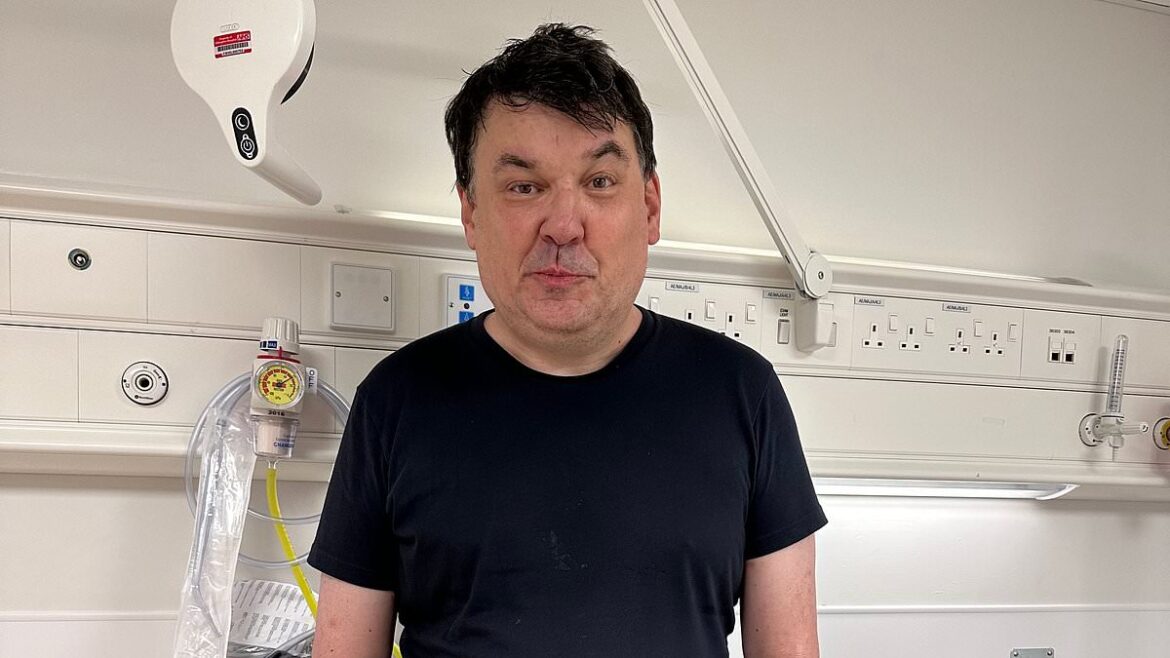What began as a routine return flight from Arizona to London ended in handcuffs for Graham Linehan, the creator of Father Ted and The IT Crowd.
The 57-year-old comedy writer was met at Heathrow Airport by armed officers who arrested him over three tweets he posted earlier this year.
The dramatic scene has now sparked a national debate about free speech, policing priorities, and whether Britain is leaning towards “thought policing.”
Arrest at Heathrow
According to Linehan, five armed officers were waiting the moment he stepped off the plane.
He was escorted to a private area, told he was under arrest for inciting violence, and later locked in a cell.
“I was treated like a terrorist,” he wrote on his blog, recalling how the stress of the ordeal landed him in hospital with dangerously high blood pressure.
Police confirmed the arrest, saying it was related to posts on X in April.
They stressed the firearms carried by officers were standard for airport policing and were never drawn.
The Tweets in Question
Linehan has since shared the posts that got him detained. One read:
-
“If a trans-identified male is in a female-only space, he is committing a violent, abusive act.
-
Make a scene, call the cops and if all else fails, punch him in the balls.”
Another was a picture of a trans rally captioned, “A photo you can smell,” followed by a blunt: “I hate them. Misogynists and homophobes. F** em.”*
Celebrity Backlash
His arrest drew immediate reactions from high-profile figures. JK Rowling raged: “What the f** has the UK become? This is totalitarianism.”*
Elon Musk went further, calling Britain a “police state.”
Piers Morgan compared the UK to North Korea, while Nigel Farage promised to raise the issue in Washington with Trump allies.
Even those who disagreed with Linehan in the past, like LBC’s Iain Dale, said the arrest was “an utter waste of police time.”
Government Response
Downing Street carefully avoided commenting directly on the case but stressed the Prime Minister and Home Secretary want police resources directed toward violent crime, knife attacks, and violence against women.
When asked if Rowling was right to call the UK “totalitarian,” a spokesman firmly said: “No.”
But opposition voices were much louder. Conservative leader Kemi Badenoch slammed the arrest as “thought policing,” saying, “Sending five officers to arrest a man for a tweet isn’t policing, it’s politics.”
Past Tensions With Rowling
Ironically, Linehan has previously accused Rowling of abandoning him when he faced backlash for his outspoken gender-critical views.
He described feeling “toxic” and “isolated” when she stayed silent.
Now, her fierce defence marks a rare moment of unity between the two.
Free Speech Union Steps In
The Free Speech Union has pledged to fund Linehan’s legal defence, calling the arrest a “preposterous” misuse of police powers.
His bail condition is simple but heavy-handed: he is banned from using Twitter/X until further questioning in October.
Other ‘Thought Crime’ Cases
Linehan’s case isn’t the first of its kind. Several recent arrests have drawn criticism:
-
Lucy Connolly, jailed for over two years after a racist tweet during the Southport riots.
-
Robert Moss, a former firefighter arrested for criticising his bosses online.
-
Julian Foulkes, a 71-year-old ex-police worker arrested over a pro-Palestine protest comment.
-
Maxie Allen and Rosalind Levine, parents held for 11 hours after a school WhatsApp complaint.
These examples have added weight to claims that UK policing is increasingly targeting speech rather than crime.
What Happens Next
Linehan is due in court later this week on separate charges, including harassment of trans activist Sophia Brooks. He has denied all allegations.
For now, he remains under bail conditions, banned from social media, and waiting for his October interview.
But beyond the legal details, his arrest has already reignited one of the fiercest debates in Britain—where to draw the line between free speech and harmful speech.
